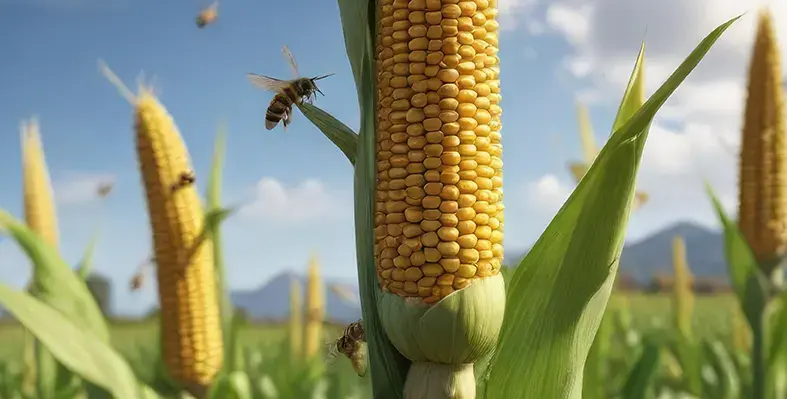PowerPollen, an agtech company based in Iowa, has unveiled its latest technological advancement: autonomous pollination robots designed to address pollination challenges in crops like corn, wheat, and rice
The company's innovative technology focuses on preserving pollen for future use, which helps growers adapt to environmental challenges such as extreme weather and droughts, factors that can disrupt seed production.
Founded in 2015 by Jason Cope and Todd Krone, PowerPollen uses a patented method to store pollen, ensuring its viability for extended periods—a crucial advantage given that pollen can survive in the natural environment for only a short window, from five minutes to an hour. This preserved pollen can then be applied to crops when needed, improving the chances of successful pollination.
The company's autonomous robots, introduced during a field demonstration, are battery-powered and equipped with a precision sprayer, GPS for tracking, and machine vision to help navigate farm rows. These robots can operate in fleets and are adaptable to both large fields and smaller farms (down to five acres). This development opens up possibilities for future functionalities, as the robots can collect valuable data during pollination, further improving efficiency and accuracy.
As extreme weather events such as droughts or heavy rains impact pollination, PowerPollen’s robots allow farmers to apply preserved pollen during the key reproductive phase. This precision helps counter disruptions, ensuring that crops are properly fertilized despite adverse conditions.
PowerPollen’s expansion goes beyond corn; the company is actively working on wheat and rice hybrid seed production, aiming to make these crops more cost-effective and profitable for farmers. Despite a downturn in venture capital investments in agtech, the company continues to drive innovation, with €22.5 million in recent funding to support its future growth.
Jason Cope emphasised, "Venture capital money is a little allergic, if you will, right now to agtech, but agtech is a foundational aspect of how we feed the world."




